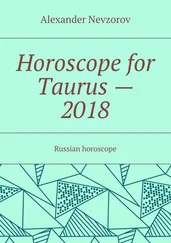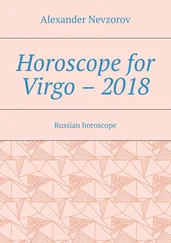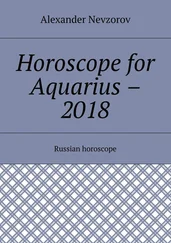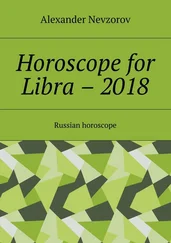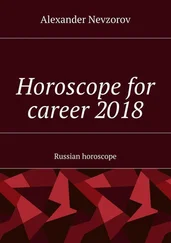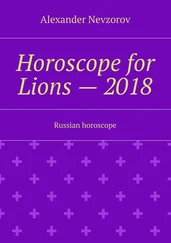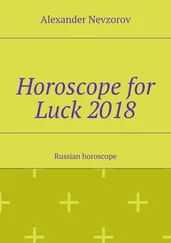When it was apparent to Russia that victory was only a matter of time and that her Western Allies were so involved in the war that a separate peace was out of the question, the Centre began to think of reviving their networks in the democracies, so that they would be in full working order when peace came and Russia would once more be in a position to obtain information of value to her from her quondam allies but real and ultimate adversaries- Great Britain and the United States. In the meantime, however, the old networks had fallen apart and the old resident directors had been moved to other posts. There was no time to establish new resident directors and as a result the rather haphazard organisation as exposed in the Canadian case came into being. I myself have no doubt that even though this network was paying dividends to the Centre in the shape of good and high-grade information, new resident directors were being established and were building up their networks quietly in the background. The world was sufficiently startled at the amount of information that the Canadian network was able to obtain. I myself have no doubt that the permanent network will do as well - if not a great deal better- if it is not doing so already. Only the network in Canada and portions of it in the United States have been exposed. It is a fair assumption that a similar emergency network existed in England also. Meanwhile the new resident directors should be well established, perhaps in Mexico and France, working and building up their networks against the United States and Great Britain. Time alone will show how successful they are.
Having outlined the theoretical layout of a Soviet spy ring, it is now time to give the actual details of the Russian espionage network working against Germany. To a certain extent I am outrunning my narrative, as I did not learn some of the facts and details until much later in my career- some of them not till I went to Moscow. But in order to draw a clear picture of the whole organisation I have here assembled all the details that I learned at all stages. It will be noticed, and a glance at the diagram of the network will show, how closely the actual spy ring corresponds with the blueprint. It must be remembered that I am dealing only with the main espionage organisation directed against Germany and based on Switzerland. Before the outbreak of war there had been several other organisations- of which Sonia's had been only one. These had lost touch with Moscow and been gradually and in part incorporated into the main Red Army network- as had Sonia's. I can speak only of these subsidiary networks in so far as they came into contact with mine. I have little doubt that they were inactive during the war as none of them, save Sonia's, had any means of communication after the fall of France. The unexpectedly swift advance of the German armies threw the whole Russian setup into confusion and caused the amalgamation of the minor networks into the main Red Army organisation.
For the sake of clarity and to keep as closely as possible to the outline given in the previous chapter I have divided the characters roughly under the heads under which they fall in the blueprint.

RESIDENT DIRECTOR
Alexander Rado.I have already described him and his ostensible cover occupation. He had, I think, come to Switzerland in 1937 and taken over the post of resident director from a woman known to me as "the woman major," whom I met afterwards in Moscow. He remained at the head of the organisation with me as his deputy until the arrests of the Hamels and Bolli in October 1943 forced him into hiding. After my arrest six weeks later the network was virtually quiescent until my release and journey to Paris a year later.
PRINCIPAL CUT-OUTS
Rachel Duebendorfer.Cover name "Cissie" or "Sisi." I did not meet her until after my release from prison, though Rado had been told by the Centre to put us into contact and we had a mutual place of conspiracy, where we were to meet if anything happened to Rado. She was, I should imagine, of Balkan origin herself though she held a Swiss passport, having gone through the ceremony of a mariage blanc with a Swiss in order to get Swiss papers. Her main function was to act as cut-out for Rado between her own two cut-outs, "Taylor" and "Isaac," mentioned below. She also acted as a contact between Rado and the Swiss Communist Party, as she was in touch with Hofmeier of that Party, who was, presumably, one of the Red Army contact men.
Cissie's role in the organisation was an important one and, as will be seen later, she also- at least in Moscow's view- played an important part in the Canadian spy case, as it was one of her more imprudent actions which, the Centre thought, led to the discovery of the Canadian network. Personally she was not really an attractive character, either physically or mentally. Her private life was slightly complicated as she lived with a former German politician, Boetcher, who had had to flee Germany after the Nazis came to power. He was living illegally in Switzerland and was ultimately arrested by the Swiss police for working for the Russians and the British. I cannot speak for the British side but he certainly was not connected with our network.
"Pakbo." The other main cut-out for Rado's organisation. I never knew Pakbo's real name, though we met frequently just before my arrest and after my release. He had been working for the Russians for many years and acted as one of the chief cut-outs and talent spotters of the organisation. His main specialty was contact with diplomatic circles in Berne, where he lived, and he also ran agents in diplomatic circles outside Switzerland. In the case of Pakbo, Rado did as he should, and put me in touch with him when he went into hiding.
Apart from the specific sources mentioned below, Pakbo was also in touch with several military attachés, including the Chinese, of whom he made use after the wireless link was broken by my arrest. On my departure from Switzerland for Paris Pakbo also asked me to deliver a message to the Soviet military attaché to the effect that one Lieutenant Colonel Thibault, the Vichy French military attaché in Berne, wished to be placed in direct touch with the Russians. Thibault stated that he had details of V-3 and wished to hand the plans over personally to the Soviet military attaché. I passed the message on but do not know what, if any, action was taken on it by the Centre.
The other main cut-out was of course myself, who also acted as one of the wireless operators for the group.
WIRELESS OPERATORS
The organisation had three wireless transmitters working after the German attack on Russia. One was run by me from Lausanne, another by the Hamels in Geneva; and the third, ultimately in Geneva, by one Margarete Bolli (cover name "Rosie").
At this stage I need say no more about myself and my activities as an operator. I have already given details regarding the recruitment and training of the Hamels. Rosie, like the Hamels, had been recruited by that invaluable and industrious talent spotter Nicole. I trained her in transmission in Lausanne in 1942 and she set up her transmitter at first in her parents' house in Basle. This led to certain domestic difficulties and after a time she and the set moved to Geneva.
MINOR CUT-OUTS
The only subsidiary contact of any importance was Taylor. He was not only a cut-out but an agent as well.
He worked back to Rado through Cissie. He provided the network with a certain amount of gossip and information from the International Labour Office where he worked as a translator. By origin a German Jew, his real name was Schneider (of which his cover name was of course only an English translation). In himself he was of little importance to the network, but as the recruiter and contact of "Lucy," our link with the German high command (who was of such importance that I have thought it worth while to devote a chapter to his activities), he was of vital importance. He and only he knew Lucy's real identity, and it was therefore vital for the network to keep him working and happy. It is not everyone who acts as intermediary for an agent who has access to all the secrets of the Oberkommando der Wehrmacht, and Taylor was at first our only link. At a critical period of the war the Centre offered him a salary for life if he would give up his job with the I.L.O. and devote himself solely to being contact man for Lucy. The only stipulation that Moscow made was that Taylor should provide an address in the United States to which the money could be sent in a lump sum in dollars. This, unfortunately for him, Taylor was unable to supply. Despite this, however, he gave up his job with the I.L.O. and did nothing more save cut-out work between Cissie and Lucy. I think that he is still waiting for his money.
Читать дальше





